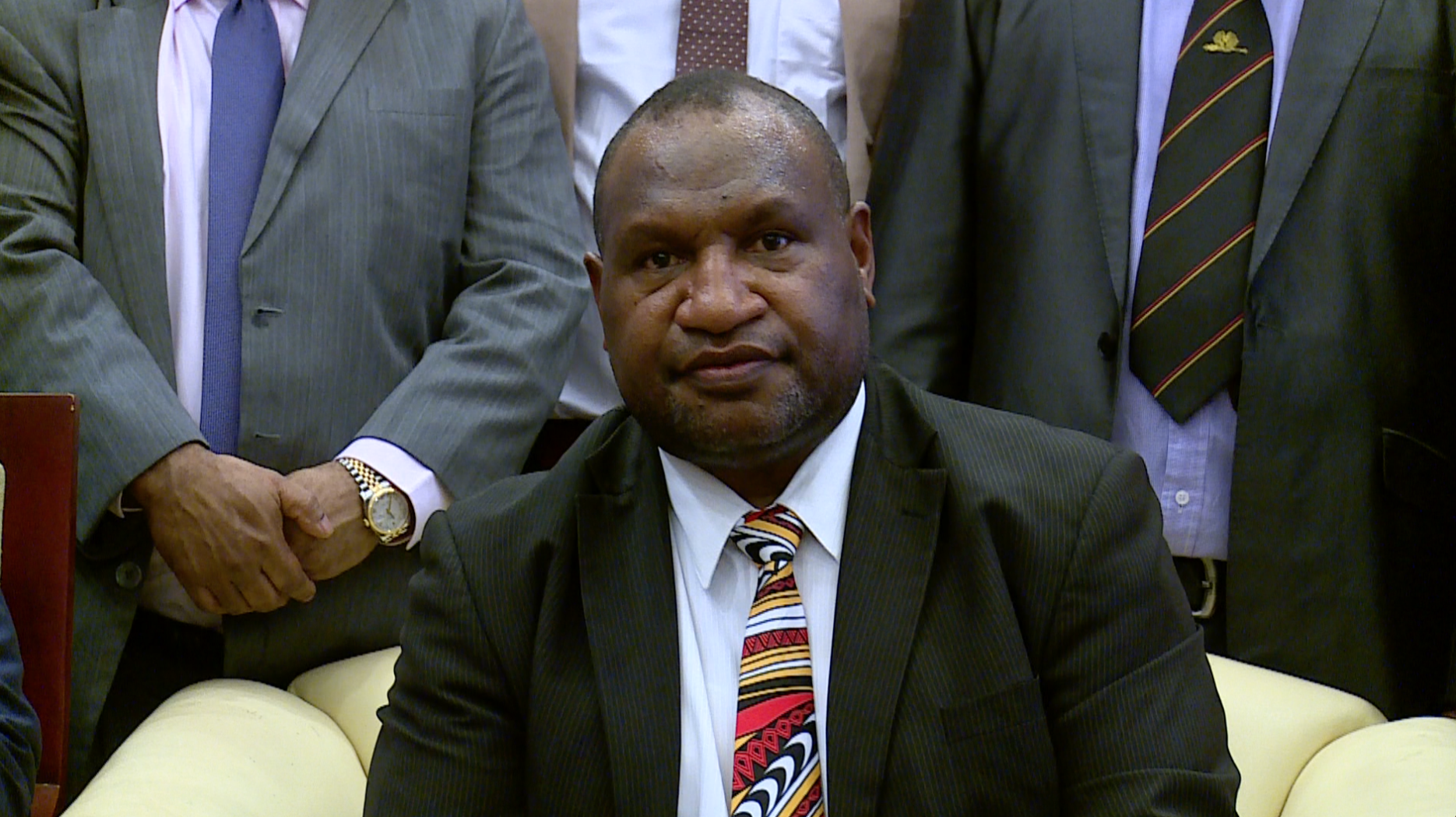th Prime Minister. The 48-year-old politician, first elected to Parliament in 2007 beginning his portfolio as Secretary for Works under Prime Minister Sir Michael Somare, eventually moving to become Education Minister and then Finance Minister under Peter O’Neill, until April this year. Continual disagreement’s with O’Neill, however, would see Marape leave his position, resigning as Finance Minister, the first crack in the once solid Government dam. The month that followed, was an arena of intense politicking, punctuated by widespread public dissatisfaction on the leadership of (now former) Prime Minister, Peter O’Neill. Verbal sparring on the one hand, and divisive beliefs on the other, all played out for the country to see. O’Neill had been as a major influence on the state of affairs on a nation teeming with natural resources, and who’d been accused on multiple occasions of corruption amidst a falling economic situation. Earlier this month, O’Neill had appeared unperturbed, calmly sidestepping his opponents in suave fashion before speaker Job Pomat adjourned parliament. That three-week hiatus, however, creating a snowball effect that would see Marape build up his own coalition of alliances, with some of the country’s most influential politicians answering the calls to his banner. He adopted Oro Governor Gary Juffa’s slogan “Take back PNG” to maximum effect, utilizing multiple media platforms to get that message across. It worked. Marape was the darling of the media. Captivating audiences in his mien. With statistical evidence yet to be presented, public reactions so far show Marape as being the most popular leader in the nation. For observers, Marape comes as a breath of fresh air, bringing with him the vibrancy of youth, against the backdrop of a maturing democracy in Papua New Guinea. The confidence in his leadership was evident, with an overwhelming 101 – 8 votes, ahead of other Prime Ministerial nominee Sir Mekere Morauta. Mekere himself had been Prime Minister under similar circumstances after a political crisis that saw 1999 Prime Minister late Sir William (Bill) Skate deposed. Moving forward for Marape, the feeling of euphoria will undoubtedly be shortlived. Papua New Guinea’s current falling economy, a loss of investor confidence and on-going public service issues, will be a major hurdle to be overcome. Hurdles that had both, been inherited from the previous administration in power, and that he had had a contributing hand in, something that he himself admitted to when queried three weeks ago about the controversial UBS dealings regarding OilSearch share acquisitions which were subsequently released by the PNG Ombudsman Commission. And with these issues only a fraction of what needs to be addressed, a looming 2022 election gives Marape very little time to make any serious changes. And whilst there is the aura of euphoria, skepticism still remains, with Former Prime Minister Morauta saying “we have a new prime minister but the same government”. The new Prime Minister knows the level of accountability that he will be held to, with Papua New Guinea’s 8 million citizens, and outspoken parliamentarians all watching one, of whom is the firebrand Bryan Kramer who’s constant barrage of criticism over the past two years has seen the public now more politic-savvy than ever before, and Marape is quite attuned to what the nation is saying. In his inaugural speech Prime Minister Marape paying heed to the collective influences that will shape his time in office. “I am encouraged and strengthened and comforted by the fact that I have energy, youth and strength and stamina in many first-timers and second-timers who are in this house on both sides of the floor.” This formed the crux of one of his arguments in the lead up to today, that it was time for a new generation of leaders to hold the reins of government. It is no revelation that the old guard of PNG politics is fading into folklore, Sir Mekere, Sir Julius Chan and Pius Wingti, are among the only elder statesmen, Grand Chief Sir Michael and Sir Rabbie Namaliu the only absentees, from PNGs ascendance post-independence era. More decisions and discussions will follow over the course of Parliament, Papua New Guinea and the international community are watching intensely, Marape’s opportunity has come, and with it, the burden of an office that saw his predecessor relegated.]]>
previous post


